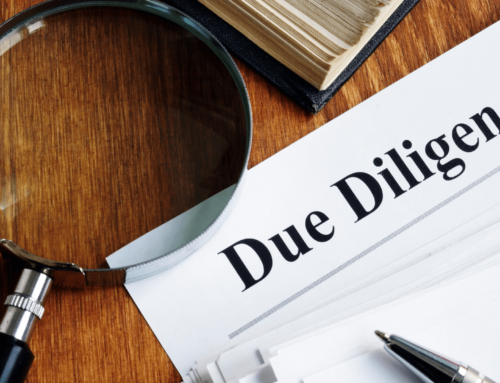Investing in real estate can be one of the most lucrative ways to grow your wealth. The world of real estate is exciting, dynamic, and full of opportunities. However, if you’re new to the game, it’s easy to make mistakes that could end up costing you.
Whether you’re looking to invest in rental properties, fix-and-flips, or even commercial real estate, it’s important to know the common mistakes that new real estate investors make and how to avoid them.
In this article, we’re going to discuss some of the most common mistakes people make when investing in real estate so that you can avoid them and make smart, savvy investments that will help you grow your wealth and achieve your investing goals.
Not Doing Proper Research
Before investing in real estate, it’s essential to do your research and know the market well.
Many new investors make the mistake of jumping into a deal without understanding the investment property’s location, demographics, and appreciation potential.
You must have a general idea of the neighborhood’s crime rates, employment statistics, and available amenities, as these factors could influence the property’s resale or rental value.
Overlooking the Expenses
Investing in real estate is not just about the purchase price. The expenses involved in real estate investments are vast, and they can significantly affect your returns.
Some of the expenses involved in investing in real estate include property taxes, insurance, property management fees, repairs, maintenance, and so on.
Do ensure to calculate these costs when planning your real estate investment strategy and make sure to account for unexpected expenses.
Not Having a Clear Investment Plan
Investing in real estate without a clear plan is like driving without a destination. It’s essential to understand your long-term and short-term financial goals and create an investment strategy that will help you reach them. On any deal, always clearly see the exit before your purchase.
Consider factors such as return on investment, rental yield, and property value appreciation when building your investment strategy.
Having a clear plan also means choosing the best geographical locations and property types that align with your goals.
Ignoring Home Inspections
When new investors set their sights on a property they like, they may overlook the importance of getting a complete home inspection.
Every property has flaws, and it’s the home inspector’s job to uncover them. A thorough home inspection will identify any significant problems, such as roofing or foundation issues before you close the deal.
With experience, you will learn what to look for in a potential investment property but when you are new or inexperienced, skipping home inspections can lead to costly repairs and legal issues that could have been avoided.
Failure to Seek Real Estate Investment Knowledge
A common mistake made by new investors is neglecting to acquire adequate real estate investment knowledge.
Understanding the intricacies of the market, the legal aspects of property ownership, and the nuances of property management can make a significant difference in the success of your investment.
In addition to basic property acquisition, knowledge about tax implications, property values, rental yields, and local market trends can greatly influence decision-making.
Ignoring the importance of education in real estate investment can lead to poor decision-making and missed opportunities. Therefore, it’s advisable to invest time in learning about the industry or seek guidance from experienced professionals.
Not Having Enough Cash Reserves
Real estate investments can be lucrative, but they can also be unpredictable. You may face unexpected expenses; for example, tenants refusing to pay rent, or a sudden downturn in the market. During these circumstances, it’s vital that you have enough cash reserves to face these situations without affecting your overall investments.
We recommend having at least 6 months in expenses per property in liquid available to you for any bumps in the road.
Failing to Devise an Exit Strategy
The lack of an exit strategy can be a significant pitfall in real estate investment. An exit strategy provides a pre-determined plan to divest your investment when it no longer meets your financial goals or if market conditions change.
Be it the long-term holding of a property or swift disposal for profit, a well-articulated exit strategy can safeguard against financial downturns and optimize the returns on your investment.
Neglecting this crucial element can lead to considerable financial loss and missed opportunities.
The Bottom Line
Investing in real estate can be a wise financial decision; however, it is essential to avoid the common mistakes when investing in properties.
Do your research, account for all expenses, have a clear investment plan, and ensure you have cash reserves in hand to prevent future problems with your investment. By keeping these mistakes in mind, you can maximize your investment and secure a better financial outlook for the future.
Also, it’s essential to speak with a real estate professional who can guide you properly in the market and help you invest in the right property that meets your overall objectives.
Click here to grab a FREE copy of The Creative Finance Ultimate Guide, where I delve into four creative financing strategies for purchasing and structuring real estate deals with little to no money down, making it perfect for complete beginners in real estate investing.
Next read: How to Pocket $30k in 30 Days!







